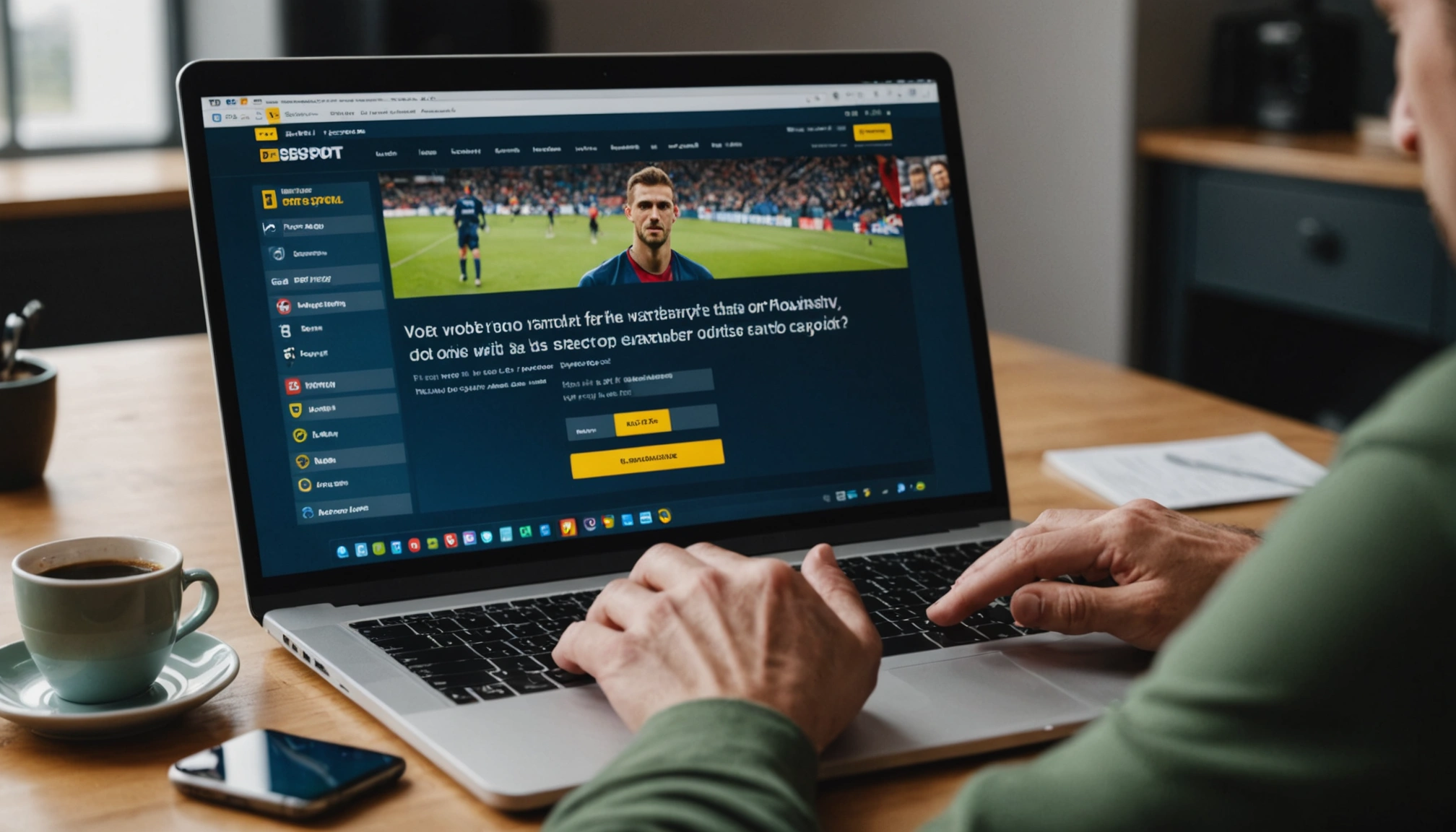how the bbc protects your data in sport polls and quizzes
Discover how the BBC collects, processes, and safeguards your data when you participate in sport polls, votes, and quizzes online.

By Editorial
understanding bbc sport online voting and privacy
When engaging with online polls, quizzes, or voting on the BBC Sport website, users may wonder how their personal information is handled. The BBC takes your privacy seriously and ensures that all data collected during these interactions complies with UK data protection laws. This article explains what data is gathered, why it's needed, and how the BBC maintains your privacy while enhancing your experience.
why does the bbc collect personal data for sport polls?
The BBC collects personal data primarily to tally votes accurately and comply with regulatory requirements. When you participate in a poll or quiz related to sport, the BBC needs to verify the legitimacy of each vote and prevent fraudulent activity. This helps maintain the integrity of the results and provides trustworthy outcomes for audiences across the UK.
Additionally, the BBC is exploring ways to improve the voting and quiz experience, such as requiring users to sign in before participating. This approach aims to increase response rates and data quality, but it will not restrict your access to the platform.
what personal data does the bbc collect?
Depending on how you participate, different data might be collected:
- If you vote using your BBC account: the BBC collects your account ID, geographic location, IP address, and your vote choice.
- If you vote without signing in: only your geographic location, IP address, and vote choice are collected.
This data collection is limited to what is necessary for the voting process and regulatory compliance.
who controls your data and what are the legal bases?
The BBC acts as the data controller, meaning it decides how and why your personal information is processed. The processing is conducted under two legal bases:
- Performance of a public task: The BBC operates in the public interest to provide content that informs, educates, and entertains, reflecting UK culture and values.
- Legal obligation: Data is also processed to meet regulatory compliance requirements.
how does the bbc share and retain your data?
The BBC may work with trusted third-party providers to facilitate online voting systems. These partners process your data only on behalf of the BBC and under strict controls. In rare cases, the BBC may share personal data with third parties when required by law.
Your data is retained securely within the UK and the European Economic Area (EEA) for up to two years to allow for audits and compliance checks. After this period, your personal data is deleted to protect your privacy.
your rights under uk data protection laws
UK residents have specific rights regarding their personal data. These include:
- Requesting access to the data the BBC holds about you
- Asking to correct any inaccuracies
- Requesting deletion of your data, subject to certain exceptions
- Restricting or objecting to processing in defined circumstances
- Requesting the transfer of your data to another organisation
If you have questions, you can contact the BBC's Data Protection Officer or visit their Privacy and Cookies Policy for more details. Should you have concerns about BBC’s data handling, the Information Commissioner's Office (ICO) at ico.org.uk is the supervisory authority responsible for enforcement.
examples of data protection in action
Consider a scenario where a fan participates in a BBC Sport poll to choose the player of the match during the Premier League. The BBC collects the vote choice, IP address, and location to verify the vote’s authenticity. This prevents multiple votes from the same user, preserving fairness. After two years, the data related to this vote is securely deleted.
Similarly, quizzes about upcoming football tournaments collect minimal data to enhance user interaction without compromising privacy. These measures ensure that fans can engage confidently knowing their personal information is protected.
improving user experience while safeguarding privacy
With ongoing digital innovation, the BBC is investigating whether requiring sign-in can boost poll completion rates. Such changes will be designed carefully to avoid limiting access and to maintain transparency about data use.
For more insights on responsible online engagement and data security, readers can explore detailed articles on digital privacy, which help understand the balance between interactivity and protection.
conclusion: trust and transparency in online sport voting
Online voting, polls, and quizzes enrich the way fans interact with sport content, but they also require careful data handling. The BBC’s privacy notice demonstrates a commitment to transparency, regulatory compliance, and safeguarding user data. By understanding how your information is collected and used, you can participate confidently in the vibrant world of BBC Sport’s interactive content.
For further reading about data security and digital engagement, check out our comprehensive guides on Sports Scoop.
Related topics
Editorial
Sports expert at SportsScoop
Specialist in sports analysis and journalism
Related articles
Want to read more?
Explore our comprehensive collection of sports articles and analysis, or contact us for more information.



